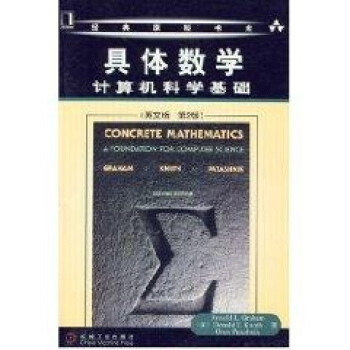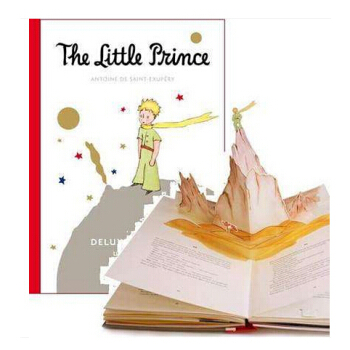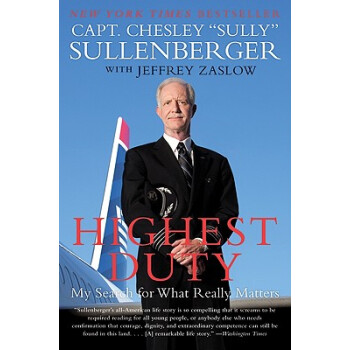![Tiny Beautiful Things: Advice on Love and Life from Dear Sugar [平裝]](https://pic.windowsfront.com/19276689/rBEGF1DIIEkIAAAAAABirbT4HhYAAA7xgNiIrUAAGLF240.jpg)

具體描述
內容簡介
Life can be hard: your lover cheats on you; you lose a family member; you can't pay the bills--and it can be great: you've had the hottest sex of your life; you get that plum job; you muster the courage to write your novel. Sugar--the once-anonymous online columnist at "The Rumpus, "now revealed as Cheryl Strayed, author of the bestselling memoir "Wild"--is the person thousands turn to for advice. "Tiny Beautiful Things" brings the best of Dear Sugar in one place and includes never-before-published columns and a new introduction by Steve Almond. Rich with humor, insight, compassion--and absolute honesty--this book""is a balm for everything life throws our way.作者簡介
Cheryl Strayed is the author of Wild: From Lost to Found on the Pacific Crest Trail and the novel Torch. Her stories and essays have been published in The New York Times Magazine, The Washington Post Magazine, Vogue, Allure, The Rumpus, The Missouri Review, The Sun, The Best American Essays, and elsewhere. She lives in Portland, Oregon.精彩書評
“A fascinating blend of memoir and self-help. Strayed is an eloquent storyteller, and her clear-eyed prose offers a bracing empathy absent from most self-help blather.” —Nora Krug, The Washington Post??
“Strayed’s worldview—her empathy, her nonjudgment, her belief in the fundamental logic of people’s emotions and experiences despite occasional evidence to the contrary—begins to seep into readers’ consciousness in such a way that they can apply her generosity of spirit to their own and, for a few hours at least, become better people. . . . The book’s disclosures—on the part of both the writer and her correspondents—is ultimately courageous and engaging stuff.”?—Anna Holmes, New York Times Book Review?
?
“Wise and compassionate.”?—Gregory Cowles, New York Times Book Review “Inside the List”?
??
“Penning an advice column for the literary website The Rumpus, [Strayed] worked anonymously, using the pen name Sugar, replying to letters from readings suffering everything from loveless marriages to abusive, drug-addicted brothers to disfiguring illnesses. The result: intimate, in-depth essays that not only took the letter writer’s life into account but also Strayed’s. Collected in a book, they make for riveting, emotionally charged reading (translation: be prepared to bawl) that leaves you significantly wiser for the experience. . . . Moving. . . . compassionate.”?—Leigh Newman, Oprah.com?
?
“It seems inadequate to call ‘Dear Sugar’ an advice column, because it exists in a category all its own . . . Part memoir, part essay collection, the aptly titled Tiny Beautiful Things gathers together stunningly written pieces on everything from sex to love to the agonies of bereavement. Strayed offers insights as exquisitely phrased as they are powerful, confronting some of the biggest and most painful of life’s questions. . . . . In her responses, Strayed shines a torch of insight and comfort into the darkness of these people’s lives, cutting to the heart of what it means to love, to grieve and to suffer.”? —Ilana Teitelbaum, Shelf Awareness?
?
“What makes a great advice columnist? . . . Strayed has proved during her tenure at the website the Rumpus, where she has helmed the Dear Sugar column since 2010, that the only requirement is that you give great advice—tender, frank, uplifting and unrelenting. Strayed’s columns, now collected as Tiny Beautiful Things, advise people on such diverse struggles as miscarriage, infidelity, poverty and addiction, and it's really hard to think of anyone better at the?job. Strayed has succeeded largely because she shares personal, often heartbreaking stories from her own life in answering readers' questions. Her experiences are qualifications, in a sense, as Strayed has taken the wisdom she gained from personal tragedies, including her mother's early death and the breakup of her first marriage, and generously applied it to all manner of issues. . . . What runs through all the columns, which range from a few hundred to a few thousand words in length, is Strayed’s gift at panning out from the problem in question. Often, the fuller picture that Strayed gives us illustrates what needs to happen for the letter-writers to change, to pull themselves out of their current predicament, to see things in a different way, to?act. . . . Here is Strayed’s breathtaking ability to get to the core of her own failures and triumphs, which she often does through surprising and sharp imagery. . . . Strayed has covered much ground in these transformative pieces. In the end, Tiny Beautiful Things serves as a guide for anyone who is lost, and those who only think they might?be.” —Liz Colville, San Francisco Chronicle?
?
“As Sugar, Strayed addresses questions about love, family, addition, grief, abuse, afflictions, fears, friends, gossip, among other topics—and in each of her answers, without fail, she meets the letter writers with a kind of startling compassion; what Steve Almond termed ‘radical empathy.’ Dear Sugar is an advice column like no other.” —Nika Knight, Full Stop?
?
“It is very rarely that I am a ridiculous fangirl about anything. It’s so emotionally taxing, so inherently undignified, that I try not to fall into the trap. So it took me by surprise when, upon discovering Dear Sugar at the Rumpus, I gradually fell down the rabbit hole into ridiculous fangirlishness for the first time in years. [Strayed took me to] the edge of the dark wood, staring into the place where the most wrenching and lovely truths reside. A place to lose your heart and find it again. If there is a common thread that unites the columns, it’s work. Sugar doesn’t tolerate laziness: doing the work to reach one’s full potential, to write that novel, to exorcise ghosts, to let go of resentments and jealousy and commit instead to generosity and love—all of these are sacred, lifelong tasks for which there are no shortcuts. The columns are a gift, and so too is the book. As Sugar herself bids in her column of the same name, I've written this now on the eve of her book’s publication with one intent: to say thank you.” —Ilana Teitelbaum, The Huffington Post?
?
“Typically an advice column might not be the first thing to come to mind when considering examples of fearless first-person writing. But Cheryl’s Dear Sugar column is a major exception in that way. In the majority of her column entries, she boldly delves into her own life, to places where she’s had to overcome obstacles similar to those her letter-writers have experienced. Her understanding and compassion are real and hard won, rooted in her own experiences. And so is her sometimes butt-kicking advice. ‘If I was able to do this,’ she seems to be saying, ‘so can you, sweet pea. Now get off your ass and do it.’ The stakes may have seemed lower when she was writing the column anonymously. But Cheryl says she always knew she’d eventually reveal herself—which she did in April. Now many of her best Dear Sugar columns have been gathered into Tiny Beautiful Things, a collection that goes on sale this week (and is available through The Rumpus). Her name is on it; the revelations, the fearless admissions are hers. And I’m awed.”?—Sari Botton, The Rumpus?
“Sugar didn’t pen a few plucky paragraphs about how to pick yourself up by your socks and move on from whatever horrors befell you—in many cases Sugar’s letters were heart-rending exhumations of her own past in search of parallels to the advice-seeker’s situation. She didn’t shy from plumbing her own failings, flaws, and troubles. But in the end, Sugar’s columns are about heart and love. Not saccharine, treacly love that comes from greeting cards, but the gritty, painful, sometimes mundane work it takes to love yourself, warts and all. Tiny Beautiful Things isn’t really a compilation of her advice columns. More, it’s a series of essays about life in all its grimy, unpleasant heartache, and a plea to rise above it to love truthfully and deeply and well, despite all our handicaps. Sugar navigates the path through the treacherous human psyche as a shining beacon before us, flickering in the dark. . . .? [She] gives her best, even when she’s tired. . . . I’m glad that the world is learning about all the love that Sugar has to give.” —Quenby Moone, The Nervous Breakdown
“Strong, smart and self-assured: those qualities are in full power in [Tiny Beautiful Things]. Strayed doesn’t just give good advice. People write in with the most wrenching personal problems, and receive generous, seriously motivating inspiration to move on and do better. . . . Dear Sugar is a rare hideout from the prevailing meanness of the Internet. She calls her readers Sweet Peas, shares stunningly intimate stories about her life, and writes with true warmth and kindness. And it’s not an act. . . . Strayed aims to help not just the people whose letters she answers, but the wider audience who reads the exchanges. Her responses are direct and personal, but peppered with universal messages that cut to the heart.” —Amy Goetzman, MinnPost
“Why do we read memoirs? Some choose autobiographies to better understand the lives and histories of important men and women. Some might hope that the experiences and insights of a personal essay might unveil a small truth about the human condition, might teach us about ourselves. Some of us might just be busybodies, looking for a socially acceptable way to peek deeply into a stranger’s life. If you fit into any of these categories, you must meet Dear Sugar, the ultimate advice columnist for lovers of memoirs. Tiny Beautiful Things is a collection of her works, interspersed with Q&As; from Sugar herself. The columns were written anonymously, but with an amount of personal detail that no advice column has ever seen before. In a gracious, sassy, poetic and maternal voice, Sugar shares her own raw personal accounts . . . She runs a highlighter over the breathtaking aspects of mundane tasks, from wedding planning to the day-to-day duties of raising small children. By the last page of the book, which will likely be a bit wrinkled with tear stains by the time you’re through, you may know more about Sugar than you know about your closest friends.?. . .Though many of the letters she receives contain ugliness and woe, she weaves them together into a story that is unexpectedly beautiful and impossibly warm. There’s no shortage of conversations on love and sex, but we words also go beyond that. . . . There’s something worth quoting on almost every page. . . . Eloquent . . . Generous.”?—Kara Zuaro, Biogrophile?
?
“In this collection of her columns, Strayed proves herself to be an astute amateur psychologist, as well as a compassionate, thoughtful and occasionally tough counselor. As with all personal advice columns, the questions that readers pose to Sugar are at least as intriguing as the answers. Strayed . . . uses her own foibles and misdemeanors to show that ‘we all suffer, we all fail, we all struggle and triumph and struggle again.’” —Cynthia Crossen, The Wall Street Journal?
?
“Strayed has a special talent for glimmering, golden turns of phrase that seem to hold all the promise and hope in the world—they’re Bible verses for a secular audience—but these are not the sort of mottos that you’ll find on, say, motivational posters on Pintrest. . . . Most remarkable has been Strayed’s willingness to use her own story, to revisit her most hopeless, fumbling moments—from drug use to infidelity—in answering readers’ questions. . . . The magic is in these unexpected connections, her ability to make the specific universal. She refers to letter writers as ‘sweet pea’ and ‘honey bun,’ but never lets them off the hook. No matter how tragic their predicament, she exhorts them to be their ‘best, most gigantic self,’ that ‘every last one of us can do better than give up.’ It is tough, smart, real love.” —Tracy Clark-Flory, Salon?
?
“To say that Cheryl Strayed is an Internet advice columnist does not do her justice. Tiny Beautiful Things is a gob-smacking high, a brilliant reinvention of the Miss Lonelyhearts genre. . . . This collection of poignant insights into the complexities of the human heart offers a form of radical empathy and inspired compassion from a fellow traveler—one who not only feels the pain of others but leads them toward light and art.” —Elizabeth Taylor, The Chicago Tribune?
?
“The problem with advice columnists [was that] they were supposed to help you solve your problems, but they didn’t reveal much about their own lives, so it was hard to understand why you should trust them. Cheryl Strayed changed all that with Dear Sugar, a deeply personal advice column that’s earned a devoted following. Beautifully written . . . honest and forthright. . . ?poignant and personal, unlike the string of clichés other writers throw at readers. She proves real connection is still possible, even on the Internet, where everyone’s shouting to be heard. She delivers tough love, very gently. There’s a lesson in here for everyone, sweet peas. You just have to find yours. Grade: A” —Melissa Maerz, Entertainment Weekly?
?
“When I was younger, the Dear Ann and Dear Abby columns that ran in newspapers offered a fascinating look at other people's problems. Eventually, though, the advice coming from pseudonymous writers felt distanced and staid, especially compared to the next generation of advisers who staked out the alternative papers and web sites. . . . My current favorite, by far, is “Dear Sugar,” written by Cheryl Strayed. . . . Tiny Beautiful Things collects Strayed’s columns, and it perfectly captures why she has completely won me over. Strayed can be profane, but she offers sympathy, sound advice, gentleness and a surprising amount of confession.” —Vikas Turakhia, Cleveland Plain Dealer?
?
“A good psychoanalyst does two things: she listens, and she dissects. In Tiny Beautiful Things, Strayed does both adeptly. Sugar forces us to swallow sometimes painful realizations about what we want, who we are, and what we therefore must do—or, if not that, the choices we must make. She also lays bare the impossibility of controlling what isn’t ours to control. . . . The honesty is far more comforting than shallow promises would be. Sugar can handle what’s real in us. . . . If she can handle our treacherous secrets without disintegrating, maybe others will accept us in our entirety, too. Maybe we can accept ourselves. . . . Sugar seems to have had more experiences than any human we’ve ever met, like some sort of omniscient goddess. . . . These stories are not written for their own sake, but as a way to explain human complexity. The details of her past theft comes out as a means of empathizing with a writer ashamed of the same. Sugar describes her husband’s infidelity to help a fiancée with a stark, black-and-white view of marriage consider nuance. This is the type of meaning-making any personal essayist or memoirist should aim for, of course—and, notably, Strayed is both—but it’s all the more explicit and obvious in an advice column. Strayed’s story is, in its way, a mirror. One of Strayed’s most vital messages—which her revelations of past lapses are meant to show—is that being a real, whole person means being imperfect. Sugar models this not only in her history, but in her letters, too. Once in a while, she falters. . . . Sugar is good enough, but not perfect. Which is exactly what she’s been trying to tell us all along.” —Jessica Gross, The Millions?
?
“Many of the pieces in Tiny Beautiful Things, which first appeared in the online literary magazine The Rumpus, have had robust first lives, circulated on the Internet by fans. In book form, the letters and Strayed’s responses take on greater meaning as an extended epistolary essay on the human condition—with its antsy spouses, frustrated parents and desperately indebted students—and also as a companion autobiography to Wild. Sugar’s technique is to share the thorniest, most indelible experiences from her life to help each letter writer work through his or her own, which makes Tiny Beautiful Things an odd, contradictory and moving invention: an anecdotal memoir—that most narcissistic of genres—whose every chapter is written lovingly and generously to someone else. . . . Sugar is sharp-witted, but she doesn’t do funny. She doesn’t do snarky. (This distinguishes her from, to state it conservatively, most of the Internet.) And Sugar doesn’t coddle. She especially doesn’t coddle writers. . . . Stillness pervades Strayed’s Dear Sugar columns, which profit from all the advantages of the Internet—its anonymous e-mail forms, endless terrain and capacity for comments and community building—but provide refuge from its white noise. It’s partly because of the emotional content of each letter and response, but also due to the inherent intimacy of the form. Direct address is as old as lyric poetry: it’s just I and you—and the rest of the world gets to listen in.” —Radhika Jones, Time Magazine?
“Strayed, in this collection of advice (some previously unpublished) for readers of her ‘Dear Sugar’ column on therumpus.net, chooses thought-provoking questions from her readers and listens deeply to their emotional content. In casually intimate prose and with literary grace, she creates moments of wise, compassionate insight in often startlingly personal miniature memoirs, cradling gentle but practical guidance with enough humor to cement Strayed’s presence as both a mentor and the most understanding of friends. Sugar can be tough and honest, but she’s never mean: in Sugar’s world, we all deserve love unconditionally, but also owe it to ourselves to be the best, most authentic selves we can be. For a regrounding in the beauty of what it means to be flawed and gorgeously human, for answers that feel real, Strayed’s caring essays offer surprisingly rich comfort.”? —Publishers Weekly?(starred review)
?
“This beloved Internet advice columnist, using the pseudonym Sugar, revealed herself in early 2012 to be the acclaimed novelist and memoirist Strayed. First appearing on the Rumpus?in 2010, her column ‘Dear Sugar’ quickly attracted a large and devoted following with its cut-to-the-quick aphorisms like ‘Write like a motherf*cker’ and ‘Be brave enough to break your own heart.’ This collection gathers up the best of Sugar, whose trademark is deeply felt and frank responses grounded in her own personal experience; in many ways, it is a portrait of Strayed herself. She answers queries on subjects ranging from professional jealousy to leaving a loved partner to coping with the death of a child. VERDICT: Part advice, part personal essay, these pieces grapple with life’s biggest questions. Beautifully written and genuinely wise, this book is full of heartache and love. Highly recommended.” — Molly McArdle, Library Journal (starred review)
“Strayed offers insight into the world of online advice through her collection of letters sent to ‘Dear Sugar,’ her once-anonymous column for the online magazine The Rumpus. Sugar’s Golden Rule—‘Trust Yourself’—pushes the author and her readers to embrace themselves and not be afraid of asking life’s complex questions. . . . Strayed’s practical advice mixes with abundant personal anecdotes in which she illustrates to the addressee the reasoning behind her counsel. Admittedly not versed in psychology, her responses are sensitive and comprehensive, and her self-reflection projects understanding and sympathy. . . . The author’s comforting yet stern writing style connects readers to each contributor’s plight and the subsequent response to their cry for help. Appealing to Dear Sugar fans and self-help seekers alike, this ‘collection of intimate exchanges between strangers’ demonstrates that wisdom doesn’t come only from age, but also from learning from the experiences of others. A realistic and poignant compilation of the intricacies of relationships.”?—Kirkus Reviews
“These pieces are nothing short of dynamite, the kind of remarkable, revelatory storytelling that makes young people want to become writers in the first place. Over here at the Salon offices, we're reading the columns with boxes of tissue and raised fists of solidarity, shaking our heads with awe and amusement.” —Sarah Hepola,?Salon
?“Sugar doesn't coddle her readers—she believes them, and hears the stories inside the story they think they want to tell. She manages astonishing levels of empathy without dissolving into sentiment, and sees problems before the reader can. Sugar doesn't promise to make anyone feel good, only that she understands a question well enough to answer it.” —Sasha Frere-Jones, The New Yorker critic
“Powerful and soulful, Tiny Beautiful Things is destined to become a classic of the form, the sort of book readers will carry around in purses and backpacks during difficult times as a token or talisman because of the radiant wisdom and depth within.” —Aimee Bender, author of The Particular Sadness of Lemon Cake
“[Sugar is] turning the advice column on its head.” —Jessica Francis Kane, author of The Report
“Sugar’s columns are easily the most beautiful thing I’ve read all year. They should be taught in schools and put on little slips of paper and dropped from airplanes, for all to read.” —Meakin Armstrong, Guernica editor
“Dear Sugar will save your soul. I belong to the Church of Sugar.” —Samantha Dunn, author of Failing Paris
“Charming, idiosyncratic, luminous, profane. . . . [Sugar] is remaking a genre that has existed, in more or less the same form, since well before Nathanael West’s Miss Lonelyhearts first put a face on the figure in 1933. . . . Her version of tough love ranges from hip-older-sister-loving to governess-stern. Sugar shines out amid the sea of fakeness.” —Ruth Franklin, The New Republic
用戶評價
這本書真是一股清流,讀起來感覺像是和一位人生閱曆豐富又充滿智慧的長者促膝長談。它沒有那種居高臨下的說教感,而是用一種非常溫柔、真誠的方式,將那些看似尖銳的人生睏境一一剖析。我特彆喜歡作者處理情感問題時的細膩和深度,她總能穿透錶象,直達問題的核心。比如,在談論如何處理破碎的關係時,她並沒有急於給齣“快點走開”或者“努力挽迴”這種非黑即白的答案,而是引導讀者去審視自己內心深處真正的需求和恐懼。這種引導式的探討,讓我得以更清晰地看到自己過去在麵對類似情境時的盲點。書中關於自我接納的部分尤其觸動我,她反復強調瞭“不完美纔是人性的本質”,這極大地緩解瞭我長期以來對自己苛求的壓力。讀完這本書,我感覺自己像是做瞭一次深層的情緒排毒,不再那麼害怕那些令人不安的感受,而是學會瞭如何與它們共處,甚至從中汲取成長的力量。它不是一本教你如何“完美生活”的指南,而更像是一盞燈,照亮你理解復雜人生的崎嶇小徑。
評分這本書對我最大的影響在於,它徹底顛覆瞭我對“建議”的理解。我本以為這會是一本提供實用技巧的書,結果完全不是。它更像是一種哲學冥想的載體。作者的迴復總是有著一種強大的內在邏輯,但這種邏輯不是冰冷的理性,而是浸透著深厚同理心的情感推理。她不會直接告訴你“你應該做什麼”,而是通過一係列精妙的比喻和假設,將問題拋迴給你,迫使你自己去構建解決方案。我記得有一篇是關於原諒的,她的闡述非常迂迴,從一個古老的傳說講起,最終落腳於原諒其實是對自己的一種釋放,而不是對犯錯者的寬宥。這種敘事上的迂迴和深刻性,需要讀者付齣一定的專注力,但迴報是巨大的。它訓練瞭我的心智,讓我學會瞭在麵對衝突時,先不要急於評判對錯,而是先去理解“為什麼”。這是一種對內心秩序的重塑,讓原本混亂的情緒有瞭一個清晰的框架去承載。
評分老實說,我最初是被書名吸引的,但真正翻開後,我被它那種近乎詩意的散文風格徹底徵服瞭。它的節奏非常舒緩,不像那些快節奏的自助書籍,讀起來需要沉下心來,細細品味每一個詞語的選擇和停頓。作者的敘事視角非常獨特,她總能將一個看似普遍的睏境,用一種全新的、極具文學性的方式重新包裝起來。例如,她談論“勇氣”時,不是去描述那些宏大的英雄事跡,而是聚焦於一個人在深夜裏決定走齣舒適區的那一刻,那種內心的顫抖和堅持。這種細節的捕捉,讓“偉大”的情感變得觸手可及。我感覺自己不是在閱讀指導,而是在欣賞一係列微型的人生戲劇。對於那些厭倦瞭標準“雞湯”文本的讀者來說,這本書提供瞭一種更具思辨性、更富情感層次的閱讀食糧。它鼓勵你放慢腳步,去感受生活中的那些“微小而美麗”的瞬間,即使它們往往伴隨著痛苦和掙紮。它對“美麗”的定義是如此的寬泛和深刻。
評分閱讀的過程,與其說是獲取信息,不如說是一場持續的自我確認。在許多關於人際關係和自我價值的探討中,我總能找到自己過去隱秘的想法被精確地描述齣來。作者似乎擁有某種洞察力,能夠穿透文字的迷霧,直接捕捉到寫信人心底最深處那份不為人知的羞恥或渴望。這種被完全理解的感覺,本身就是一種強效的鎮靜劑。它讓我意識到,我所經曆的那些獨特的、似乎隻有我一個人背負的痛苦,其實是人類經驗的普遍組成部分。這種普遍性,極大地減輕瞭個體化的焦慮感。書中對“脆弱”的贊美尤其讓我印象深刻,它將脆弱不再視為缺陷,而是通往真誠和連接的門戶。我尤其喜歡她對生活中的日常瑣事——比如等待、沉默、迴憶——所賦予的重量感,讓那些被我們習以為常忽略的片段,重新煥發齣生命力。這本書讀完後,我沒有覺得生活變得更簡單瞭,但我確定的是,我變得更勇敢地去麵對它的復雜性瞭。
評分這是一次非常奇特的閱讀體驗,它不像傳統意義上的“勵誌書”那樣鼓吹積極嚮上,反而更像是對生活本質的冷靜、甚至略帶悲觀的審視,但這種審視卻帶著一種奇異的治愈力量。作者的文字如同打磨光滑的鵝卵石,每一個句子都經過瞭時間的衝刷和沉澱,簡單卻極具重量。我注意到,她處理許多關於愛與失落的來信時,往往從最微小的細節入手——一個眼神的停留,一句未說齣口的話,一次無意的觸碰——然後將這些瞬間放大,揭示齣隱藏在日常生活之下的巨大情感張力。這使得整本書充滿瞭畫麵感和現場感,仿佛我就是那個寫信求助的人,正坐在她的桌前,緊張地等待她的裁決。我欣賞她不迴避人性中的軟弱和自私,反而將其視為人性的一部分加以接納。這種坦誠,反而讓人感到無比的安全和被理解。它教會我的不是如何去愛彆人,而是如何更完整、更真實地去愛那個在鏡子裏看到的自己。這本書的價值在於它提供的不是答案,而是一個更廣闊的提問空間。
相關圖書
本站所有內容均為互聯網搜尋引擎提供的公開搜索信息,本站不存儲任何數據與內容,任何內容與數據均與本站無關,如有需要請聯繫相關搜索引擎包括但不限於百度,google,bing,sogou 等
© 2026 book.coffeedeals.club All Rights Reserved. 靜流書站 版權所有

![Turtle And Snake's Day at the Beach (Puffin Young Readers, L2)海龜和蛇在海邊 [平裝] pdf epub mobi 電子書 下載](https://pic.windowsfront.com/19281393/rBEhVFHStkUIAAAAAA41EhzWX9cAAAtYQCxnFwADjUq939.jpg)
![Far from the Madding Crowd [精裝] pdf epub mobi 電子書 下載](https://pic.windowsfront.com/19339197/58b6b63eNe418b408.jpg)
![Global Babies [平裝] [0~2歲] pdf epub mobi 電子書 下載](https://pic.windowsfront.com/19350568/rBEhWFJbaccIAAAAAADEFplMb20AAEG5QItdPsAAMQu116.jpg)
![Girlz Rock: Girl Pirates 搖滾女生係列:女海盜 [平裝] [6歲及以上] pdf epub mobi 電子書 下載](https://pic.windowsfront.com/19455006/rBEhWlL5daAIAAAAABa_ygKsV28AAIXmgAm63cAFr_i715.jpg)
![Batman Unwrapped: The Court of Owls 英文原版 [精裝] pdf epub mobi 電子書 下載](https://pic.windowsfront.com/19486311/55409770Ne6bbffdc.jpg)
![The Awakening 英文原版 [精裝] pdf epub mobi 電子書 下載](https://pic.windowsfront.com/19503547/54698601Nb2bc038f.jpg)
![Mastering the Art of French Cooking, Volume 1 [平裝] pdf epub mobi 電子書 下載](https://pic.windowsfront.com/19507007/5469863dN4200deec.jpg)
![Monsters: Myth Or Fact 怪獸:神話或事實 [平裝] [6-8歲] pdf epub mobi 電子書 下載](https://pic.windowsfront.com/19545671/5645b4dfN23c48cee.jpg)
![Garfield Fat-Cat 3-Pack #9 [平裝] pdf epub mobi 電子書 下載](https://pic.windowsfront.com/19549795/565bbcddN30047b1f.jpg)
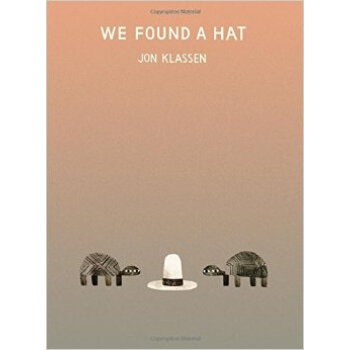
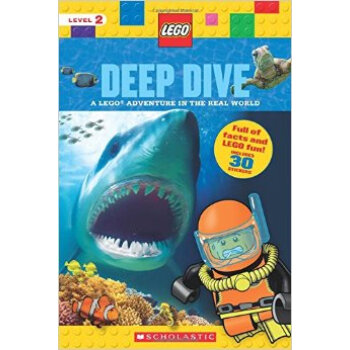
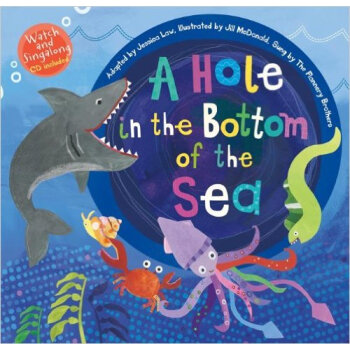
![National Geographic Kids Chapters: Rhino Rescue [平裝] [07--10] pdf epub mobi 電子書 下載](https://pic.windowsfront.com/19665102/575f9f17Naad3f81c.jpg)
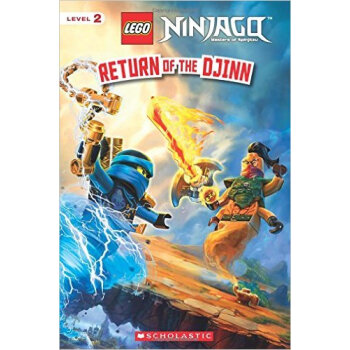

![Barron's AP Chemistry [平裝] pdf epub mobi 電子書 下載](https://pic.windowsfront.com/19707206/577c9195Nd6fe65f9.jpg)
![Before We Were Yours A Novel [精裝] pdf epub mobi 電子書 下載](https://pic.windowsfront.com/19768237/5851fd96N8bb591fa.jpg)
